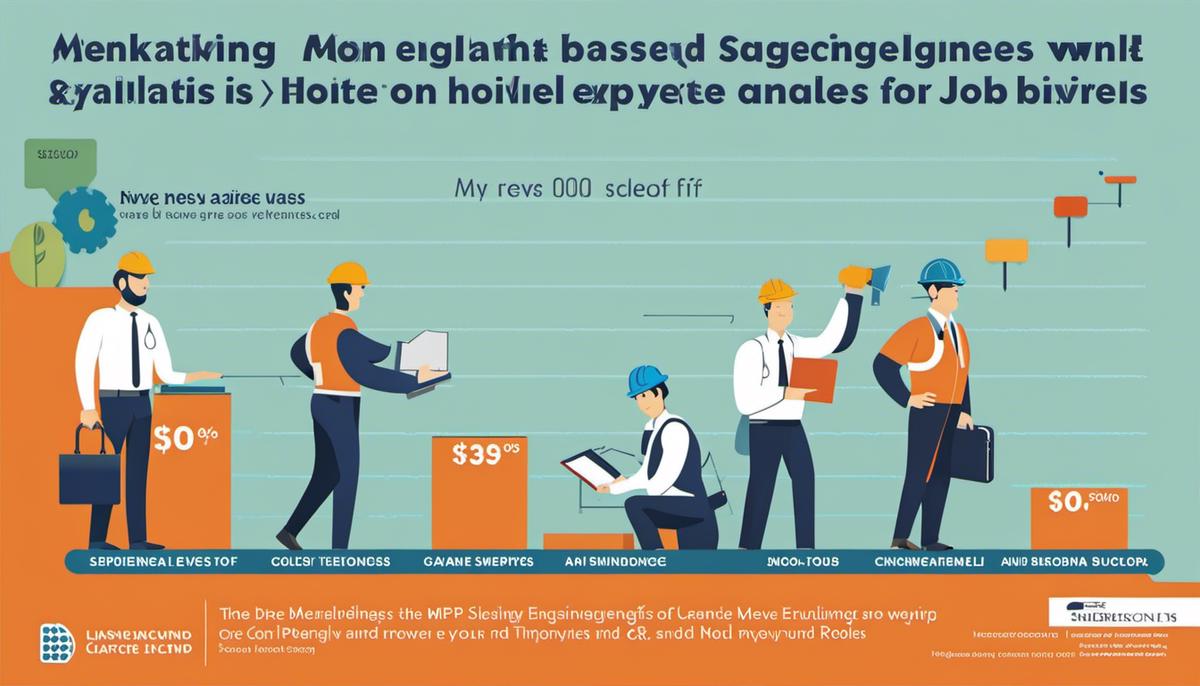In the world of construction and infrastructure, certain roles often go unnoticed by the general public despite their critical importance. The work of Mechanical, Electrical, and Plumbing (MEP) Engineers is one such example. These experts are fundamental to making buildings functional, comfortable, and safe. Meticulously designing heating, cooling, lighting, and plumbing systems, ensuring the sustainability and efficiency of structures, their contributions are pivotal to our built environment. The versatility of their skills opens a wide range of career opportunities across diverse industries.
Meaning of MEP Engineer
MEP Engineer: A Comprehensive Look into Meaning and Role
MEP stands for Mechanical, Electrical, and Plumbing. Thus, an MEP engineer is a professional who engages in the engineering of these three pivotal building systems. This role combines a trio of technical disciplines that intersect with building design and construction. Typically involved in an assortment of projects ranging from residential to commercial complexes, MEP engineers ensure that mechanical, electrical, and plumbing systems function effectively and efficiently.
Responsibilities of MEP Engineers
The critical role of an MEP Engineer involves the design, development, construction, and maintenance of mechanical, electrical, and plumbing systems. This encompasses heating, ventilation, and air conditioning (HVAC) systems, energy supply, lighting, elevators, fire detection and protection, along with systems for handling water and waste.
Meanwhile, MEP engineers also set the strategies and outline the procedures for installation, troubleshooting, and maintenance while ensuring that the systems meet safety regulations and environmental standards. These professionals often collaborate with architects, structural engineers, and other construction professionals to create building designs that optimize operational efficiency, safety, and comfort.
Jobs for MEP Engineers
Job opportunities for MEP engineers exist across various industries and sectors like construction firms, engineering consulting firms, government agencies, and even manufacturing industries. Specific roles might include MEP project engineer, HVAC design engineer, electrical design engineer, or MEP manager, just to name a few.
These experts can partake in a comprehensive spectrum of tasks: from designing small-scale projects, like individual residential homes, to large-scale tasks, including constructing sprawling commercial buildings or industrial parks. While some MEP engineers may specialize in one aspect such as mechanical, electrical, or plumbing systems, others may opt to become proficient in all three areas for more diversified job opportunities and better prospects.
MEP Engineer Salaries
Salaries for MEP engineers can vary widely based on factors such as geographical location, years of experience, levels of education, as well as the specific industry or market sector in which an individual is employed.
According to PayScale, the average MEP engineer salary in the United States is around $72,000 per year, with pay ranging from as low as $51,000 to upwards of $101,000 annually.
With additional years of experience and advanced degrees, the salary can potentially rise even higher, and often positions include benefits such as health insurance, retirement plans, and performance bonuses. Positions within larger companies or in high-demand areas tend to offer higher salary ranges due to the complexity and scale of projects.
In the vast and complex field of building design, construction and maintenance, the MEP engineer plays a crucial and multifaceted role. This professional, versed in the mechanical, electrical, and plumbing domains, is integral in ensuring a building’s functionality, comfort, and safety. Their broad-based expertise allows them to navigate seamlessly through the ever-evolving landscape of engineering.

Roles and Responsibilities of MEP Engineers
Exploring the Term: MEP Engineer
The acronym “MEP” represents Mechanical, Electrical, and Plumbing – the three core areas of an MEP engineer’s focus. These disciplines intersect and synergize in the successful completion of tasks and projects. The role of an MEP engineer extends beyond just design; they coordinate, manage, and oversee the integration and smooth functioning of these technical fields. The driving purpose of an MEP engineer is to ensure that the building and its systems align with the design specs and operate without hitches.
Roles and Responsibilities of MEP Engineers
MEP engineers are responsible for an array of tasks within the building industry. Their responsibilities typically encompass the design and implementation of various systems in buildings. This can include heating, cooling, and ventilation systems under the mechanical aspect; electrical power management and lighting control for electrical systems; and water management, waste removal, and fire control in the plumbing section. They must create design and construction drawings, fix issues, and make sure that the building systems follow local and national building codes.
In addition to designing these systems and assuring compliance with regulations, another critical role of MEP engineers is to ensure energy efficiency and sustainability. They need to be innovative and find smart and eco-friendly solutions to lower energy costs while ensuring optimal performance.
MEP engineers commonly work as part of a team and are integral to both the planning and execution stages of any building project. They collaborate with architects, civil engineers, and other professionals to ensure that all systems in a building are integrated seamlessly. Effective communication and collaboration are therefore essential skills for MEP engineers.
Jobs for MEP Engineers
There are various jobs and industries where MEP engineers can put their skills to use. They can work for engineering consulting firms, construction companies, and government agencies. They can also serve as independent consultants or contractors, providing expert advice to clients on building complex MEP systems.
Some of the job roles that MEP engineers can hold include Consulting Engineer, Senior Mechanical Engineer, Electrical Design Engineer, Plumbing Engineer, and HVAC Design Engineer, among others. The type of job role largely depends on their specializations and career interests.
Compensation of MEP Engineers
The compensation for MEP engineers can fluctuate significantly based on factors such as experience, the particular industry, and geographic location. As per data from PayScale, a novice MEP engineer in the United States has an estimated average earning of around $60,000 per year. However, with the acquisition of experience and specialized skills, this sum is poised to increase considerably. MEP engineers mid-way into their career have an average earning of about $80,000 annually, and those with over a decade of experience may take home more than $100,000 per year. Top-tiered roles like the MEP Engineering Manager often command an average salary of around $120,000 and above.
It’s important to remember that these numbers represent averages, and actual compensation may be different. Additional certifications, advanced degrees, and roles that shoulder larger responsibilities can enhance the income potential in the field of MEP engineering.

Career Path and Jobs for MEP Engineers
Understanding the Role of an MEP Engineer
The abbreviation MEP refers to Mechanical, Electrical, and Plumbing, and it denotes an integral role in the process of constructing and maintaining buildings. An MEP engineer designs and supervises the execution of systems which render buildings secure, comfortable, and functional. This role involves the handling of various systems such as heating, ventilation, and air conditioning (also known as HVAC), electrical, plumbing, fire protection, along with other quality of life-enhancing systems. People living or working in these buildings directly benefit from the efforts of these engineers.
Roles and Responsibilities of an MEP Engineer
The MEP engineer is responsible for a multitude of roles and responsibilities within a construction project. The engineer is involved from the design phase, discussing needs and goals with architects and other engineers, to the maintenance, troubleshooting, and update phase after the building is completed.
Responsibilities of an MEP engineer include:
- Design of mechanical, electrical, and plumbing systems
- Coordination with other engineering disciplines and architects
- Preparation of drawings and specifications
- Participation in project meetings
- Inspection of construction activities
- Troubleshooting and solving problems
- Commissioning of systems and equipment
- Maintenance planning and updates after construction
Career Path and Jobs for MEP Engineers
To become an MEP engineer, one generally needs a bachelor’s degree in mechanical engineering, electrical engineering, or a related field. Some employers may prefer candidates with a master’s degree or relevant work experience in MEP. Licensure as a Professional Engineer (PE) is usually required.
The job of an MEP engineer typically involves working in engineering firms, consultancy services, in the construction industry for contractors, or potentially for a government entity. The engineering services sector is the most significant employer of MEP engineers. Job titles in this profession vary widely and can include positions such as MEP Engineer, HVAC Engineer, Electrical Design Engineer, and Plumbing Engineer.
MEP Engineer Salaries
An MEP engineer’s salary can vary depending on the location, industry, years of experience, and level of education. According to data from salary comparison website Payscale, the average salary for an MEP engineer in the United States is around $70,000 as of 2022. However, experienced MEP engineers with advanced qualifications can expect significantly higher salaries, often well into six figures.
Job Requirements for MEP Engineers
Typical job requirements for an MEP engineer may include:
- Bachelor’s or Master’s degree in Mechanical or Electrical Engineering
- Professional Engineer license
- Several years of experience in MEP design
- Proficiency in design software, such as AutoCAD, Revit, or similar
- Strong understanding of local building codes and regulations
- Excellent communication and project management skills
- Ability to work collaboratively in a team environment.
In addition to these requirements, an MEP engineer should also possess problem-solving skills, be detail-oriented, and have the ability to visualize complex systems.
Image Description:
In this image, you can see an MEP Engineer working diligently on their designs. The sophisticated yet intricate tools and software at their disposal highlight the complexity of their job, which involves ensuring buildings are functional, safe, and efficient. From residential homes to commercial skyscrapers, their contribution plays a significant role in the foundation of modern day architecture and infrastructure.

MEP Engineer Salary Expectations
The Duties of an MEP Engineer
Delving deeper into the role, ‘MEP’ engineer refers to the expert of Mechanical, Electrical, and Plumbing systems within a building. Their contribution is foundational to any construction site they are involved in, encompassing a wide spectrum of tasks including crafting the design for heating and cooling systems, managing the installation of lighting, overseeing the water supply infrastructure, and executing the fire protection systems. With architects and other kinds of engineers, they form a collaborative team dedicated to creating buildings of varied types – residential, commercial, and industrial, as well as public infrastructure. Together, they strike a balance between functionality and safety through efficient design and implementation.
Responsibilities of an MEP Engineer
MEP engineers are typically responsible for the design, installation, and maintenance of mechanical, electrical, and plumbing systems within a building. This could include tasks such as creating design plans, estimating project costs, conducting site inspections, and troubleshooting system issues. They also need to ensure that all systems meet industry standards, codes, and regulations. These professionals need to understand complex technical information and communicate effectively with clients and other members of the construction team.
Jobs and Career Paths for MEP Engineers
There are several career paths available for MEP engineers, depending on their interests and specialization. Some may choose to focus on a particular aspect of the field, such as HVAC or electrical systems, while others may prefer a more generalist role. They can work for engineering and architecture firms, construction companies, government agencies, or even as independent consultants. Potential job titles could include MEP project engineer, HVAC designer, electrical design engineer, or building services engineer.
MEP Engineer Salary Expectations
According to PayScale, the average salary for an MEP engineer in the United States is approximately $70,000 per year. However, salaries can vary significantly depending on factors such as location, level of experience, and area of expertise. For example, senior MEP engineers with more than 10 years of experience can earn upwards of $90,000 per year.
Location also plays a significant role, as salaries are typically higher in metropolitan areas with a high cost of living. For instance, in cities like San Francisco or New York, MEP engineers can make well over $100,000 per year.
Specialization can also influence salary. Those who specialize in a high-demand area, such as renewable energy or green building technologies, may have higher earning potential.
Finally, salaries may also vary between industries. For example, MEP engineers who work in software development or technology may earn more than those in traditional construction or manufacturing industries.
It’s important to consider all these factors when considering a career in MEP engineering. It’s a field with a wide range of opportunities and potential for growth, both professionally and financially.

As we unravel the complexities of the world of MEP Engineering, it becomes evident how crucial their roles are in shaping our immediate environment – from the offices we work in, the homes we live in, to the public spaces we enjoy. Their expertise ensures our buildings are designed and maintained to provide maximum comfort, safety, and efficiency. The demand for these professionals is projected to rise with the continuous advancement in technology and stringent sustainability measures. As an MEP engineer, not only can one anticipate a fulfilling career but also a lucrative salary that aligns with one’s skills, experience, and geographic location.
